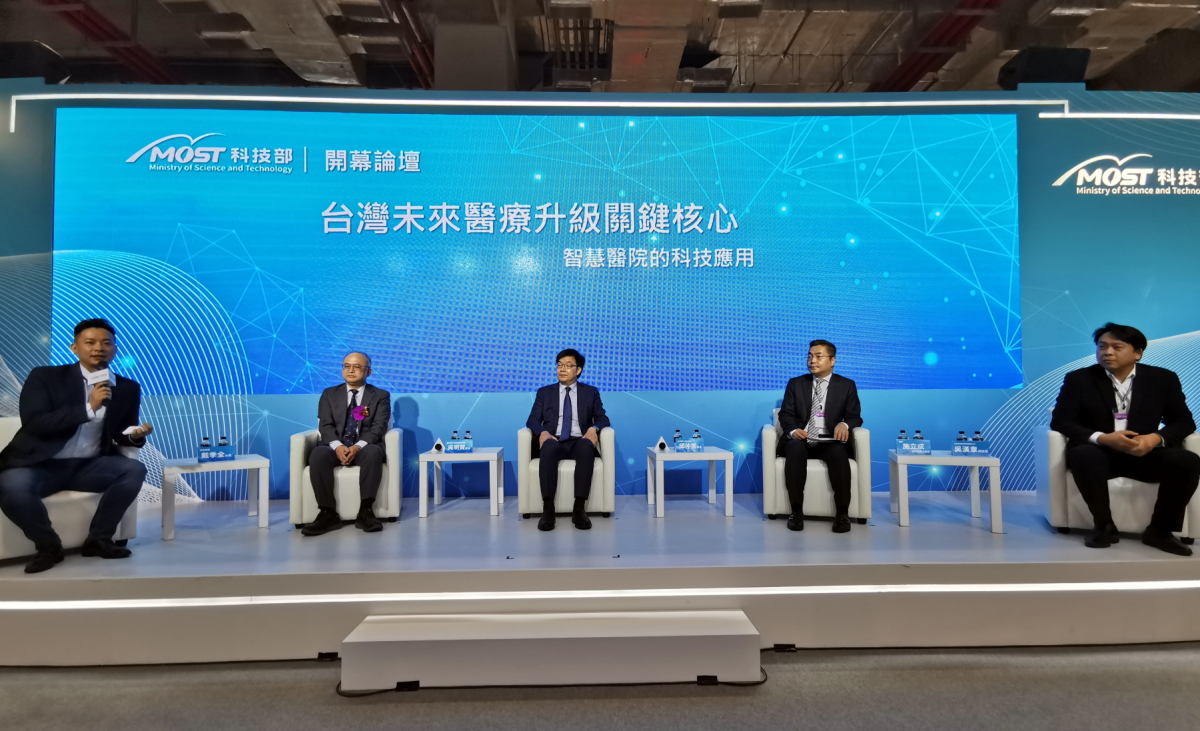
November 4 of 2021 saw the start of the physical exhibition of BIO Asia. Focusing on biotechnology as well as medical technologies and innovations, the event was joined by a significant number of teams from universities across Taiwan as well as startups and companies in diverse fields and disciplines. The teams were arranged into pavilions which were co-organized in part with the Ministry of Science and Technology (MOST) Global Research & Industry Alliance (GLORIA).
Many teams have grown to become startups, applying their research during the university days to real life applications. These spinoff startups often have a strong competitive advantage in specific fields or applications that they explored before. Unfortunately, their expertise might also become a weakness as it brings about a form of tunnel vision where personal biases cloud judgement and decision-making processes. In this situation, an outsider perspective is often needed not only for the survival of the startup, but also to make sure all the hard work and potential can be directed to be more effective and efficient.
In some situations, outsider perspective and cooperation might be more than needed, it is instrumental. This point was raised in a panel discussion between Dr. Ming-Shiang Wu, Superintendent of the National Taiwan University Hospital; Professor Jeng-Fong Chiou of Taipei Medical University; Vincent Shih, Assistant General Counsel of Microsoft and GM of Microsoft Taiwan; and ASUS Life Corporation and ASUS Cloud general manager Wu Han-Chang. In the panel discussion, a point was raised on the usage of AI in a medical setting. The general agreement was that medical purpose AIs will need to be accurate and consistent to gain approval; especially from the government governing bodies and commercial users. To achieve the 2 requirements of accuracy and consistency, the AIs must be trained with historic data and the results of the training confirmed by appropriate human experts.
Achieving Purpose-Ready AI
While there is no golden rule on the amount of data needed to train an AI adequately, the consensus is that higher data quality and quantity are beneficial for training purposes. Startups might fall short here as the data they have might be limited to the ones already in their possession or to publicly accessible data; either commercial or free which might not be enough to train the AI to a satisfactory degree. On the other hand, institutions such as hospitals or even universities are very likely to have an abundance of data that they can supply for a variety of purposes.
Businesses can also come into the partnership by offering their insights on profitable ventures and potential niches to explore. Startups and universities might suffer from the same tunnel vision that prevents them from expanding into potential areas, specifically ones they are not familiar with. In this situation a worldlier approach from the business perspective might be the needed push for new and better innovations. However, both businesses and academics generally tend to share information on a need to know basis which potentially limits possible innovations and delays developments. Only by foregoing this “information silo” model will the 3-party partnership work and the parties can mutually thrive.
Alliance, Support, and Returns
During the event, a few startups that were spinoffs from university project teams joined the pavilions organized by their alma mater or incubation centers. In a conversation with the startups, they mentioned how the teams' transformation into a startup was supported in part by their universities; particularly in funding and resources. The university support can be treated more as an investment on the university part as the startups repay the universities in money, expertise, or research data.
This real example shows perhaps two of the most important aspects of a strategic partnership among businesses: reciprocity and mutual benefits. Often there are questions of scope and scale between partners, especially when the terms are not clearly defined or the exchange was done with product/ service as the value might not be equal in the eyes of the partners. In this situation, to prevent disagreements or early dissolution; perhaps a clear contract drawn up between involved parties moderated by a third party will be the needed solution. Especially when it comes to monetary exchanges or work fulfillment.
Uniting Stakeholders
A few initiatives have been taken to gradually help academia and businesses, including startups, to start creating meaningful and fruitful partnerships. One such initiative is the Global Research & Industry Alliance (GLORIA) that started in April 2018 under the Ministry of Science and Technology (MOST). GLORIA's main goal is to form global research and industry alliances that are centered on universities. Focusing on advanced technologies, the project aims to build industry-university-research platforms to link Taiwan with the global market. This project will also benefit industries by providing them with talents and scientific research services; many of whom are cultivated in Taiwan's top universities.
To learn more about GLORIA, click here.
GLORIA has also organized a pavilion in InnoVEX ONLINE 2021: the Global Research & Industry Alliance (GLORIA) 2.0.
Look forward to more updates from InnoVEX
InnoVEX ONLINE 2021 matchmaking may have ended, but this is far from the end of it. Operating for the whole year, the InnoVEX ONLINE platform is active 24/7 and visitors can check out the exhibitors at any time and even contact them directly through the PinChat function built into the platform. There will also be news from InnoVEX regularly that will be published and sent via the weekly InnoVEX Tech Startup News digital newsletter. The content will also include highlighted exhibitors, pavilions, and other features of InnoVEX ONLINE 2021. Subscribe to the InnoVEX Tech Startup News here and never miss an update from InnoVEX.
InnoVEX 2022 is now open for Registration
In addition to the online platform, the 2022 InnoVEX onsite exhibition will take place in Taipei, Taiwan from May 24-27,2022. Online registration for both the hybrid exhibition or the InnoVEX ONLINE platform have started for global exhibitors. For more info or registration details, please click here.